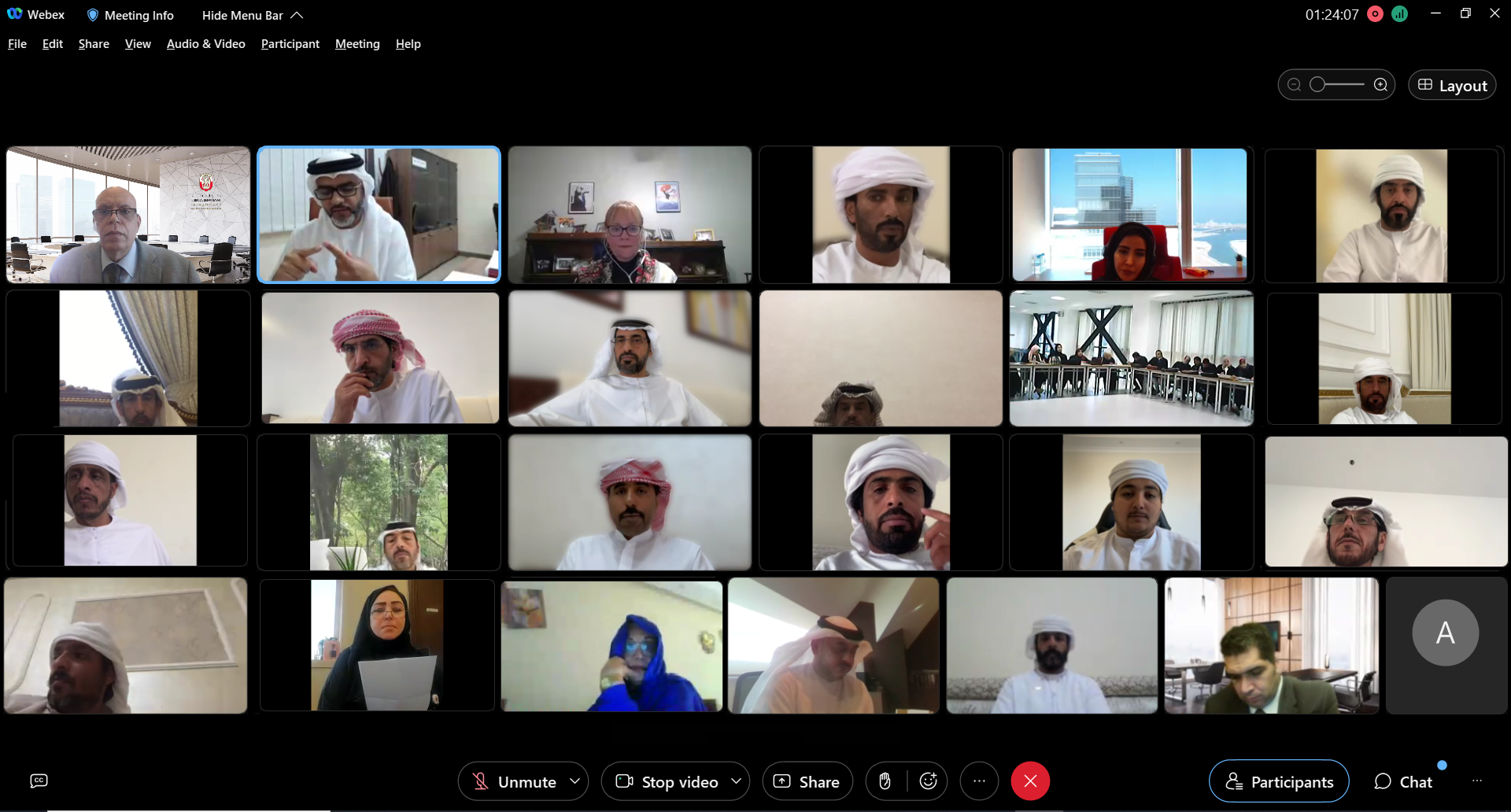In Parallel to COP28
The ADJD Explores the Role of Environmental Incentives and Taxes in Combating Climate Change and Promoting Sustainable Development
09 December 2023
The Abu Dhabi Judicial Department (ADJD) delivered a forum on "The Legal Framework for Environmental Incentives and Taxes as a Tool to Combat Climate Change and Promote Sustainable Development", in conjunction with the activities of the Conference of the Parties to the United Nations Framework Convention on Climate Change (COP28), which are being held in the UAE until 12 December 2023.
Intervening within the strategic guidelines of the Year of Sustainable Development 2023, the event was also prompted by the Judicial Department's interest in fostering the government's objectives to achieve sustainable development, in implementation of the directives of His Highness Sheikh Mansour bin Zayed Al Nahyan, Vice-President of the UAE, Deputy Prime Minister, Chairman of the Presidential Court and Chairman of Abu Dhabi Judicial Department, to pursue supportive efforts aimed at establishing a pioneering legal and judicial system that contributes to addressing challenges and providing innovative solutions in support of the emirate's competitiveness.
The forum, moderated by Mr. Faisal Al Hammadi, Director of Abu Dhabi Region Prosecution Division, addressed the concepts of sustainable development and its economic, social and environmental dimensions, and traced the history of the Conference of the Parties (COP), the Paris Agreement at COP21, the most important challenges posed by climate change and the role of environmental incentives and taxes in achieving sustainable development.
On the occasion of the forum, the pioneering efforts undertaken by the United Arab Emirates to combat climate change were highlighted, including the launch of the National Environmental Strategy in 2002, the hosting of the International Renewable Energy Agency (IRENA) since 2009, the launch of the UAE Green Growth Strategy in 2012, the UAE Green Agenda Programmes in 2015, and the creation of the National Committee on Sustainable Development Goals in 2017, the UAE National Sustainable Consumption and Production Plan in 2019, the General Environmental Policy in 2020, which is structured around 8 national priorities, in addition to hosting the 28th edition of the Conference of the Parties (COP28).
The event also looked at the international protocols and treaties to which the UAE is a party, the UAE's general environmental policies, the national electric vehicle policy, the integrated management of recyclable materials, in addition to the UAE Energy Strategy 2050 and the National Hydrogen Strategy.
The forum also drew attention to the social responsibility of companies and their environmental obligations, as well as the importance of contributing to the fight against climate change by investing in renewable energies, promoting the growth of trees and greenery, switching to alternative fuels, improving energy efficiency and reducing carbon dioxide (CO2) emissions.
The forum highlighted the Conference of the Parties (COP28), which is focusing on the transition to clean energy sources and the reduction of greenhouse gas emissions by 2030, channelling financial support for climate action from the richest to the poorest countries, the delivery of a new agreement for developing countries, and the examination of health, finance, food and nature issues, with the participation of over 180 heads of state and government from around the world.

